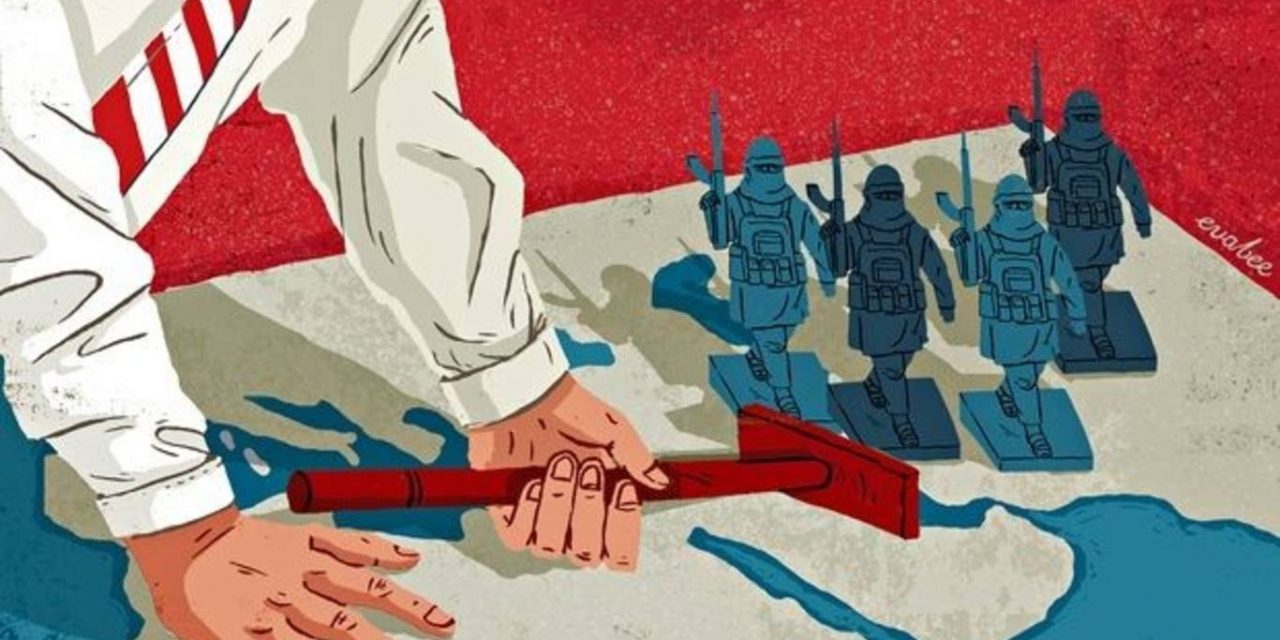There are lessons for Pakistan
By Aziz-ud-Din Ahmad, The writer is a political analyst and a former academic.
There is a need to note that the ISIS and other extremists who are on the run in the Middle East are likely to start their activities in other countries, particularly Pakistan
The recently formed Russia-Iran-Turkey troika has a significance first and foremost for the Middle East. It has also implications for a number of other countries including Pakistan. With the troika promising through its Moscow Declaration to end the civil war in Syria and act as guarantors there has emerged a new dynamic around Syria.
The first impact made by the tripartite alliance is the freezing out of the US, at least for the time being, from the discourse on Syria. Despite its deep involvement in peace talks all along the US has been reduced to the level of a concerned bystander after Nato ally Turkey decided to join hands with Moscow and Tehran.
“We weren’t invited,” said State Department spokesman John Kirby of the Moscow meeting. “But Secretary of State John Kerry made follow-up phone calls to his Russian and Turkish counterparts for readouts of what was discussed”. “The Secretary doesn’t see this as a snub at all,” Kirby said, and if the Moscow talks can somehow lead to a ceasefire, then “the Secretary is perfectly fine with him not being in the room.” This amounts to making the best of a bad bargain.
The troika maintains that the US initiative was bound to fail. As Russian Defence Minister Sergei Shoigu put it, all previous attempts by the United States and its partners to agree on coordinated actions were bound to fail because none of them wielded real influence over the situation on the ground. According to Shoigu Russia which has backed President Bashar al-Assad with air strikes, special forces and military advisers, and Iran and Turkey are making a real difference.
The troika claims that it is aware of the importance of expanding the ceasefire and of unhindered access for humanitarian aid and free movement of civilians across Syria. The three countries have undertaken through the Moscow Declaration that they are “ready to facilitate the drafting of an agreement, which is already being negotiated, between the Syrian government and the opposition, and to become its guarantors.” The Declaration invites “all other countries with influence over the situation on the ground to do the same” i.e. help get a deal.
The Arab countries of the Gulf, which had organised and armed the rebels and had been desperately trying to replace the Bashar al-Assad regime with a pro-Saudi set up by sheer force, had to eat the humble pie. They are out of business as far as Syria is concerned.
The Saudi Middle East policy has faced a debacle. Rival Iran is on the ascendant being one of the three mediators in Syria. Signs of impotent rage are emerging from the kingdom. The Council of Ministers chaired by the king on Monday reiterated its strong condemnation of the ‘continuing brutality in the city of Aleppo where innocent people are exposed to killings, siege, starvation, displacement and the violation of human rights’. Included among the ‘innocent people’ are suicide bombers, their handlers, IED making experts and killers belonging to notorious terrorist groups.
An article in Saudi Gazzette on Monday poured scorn on Putin. The article with the title “Putin, the Saviour” ends comparing him with Hitler.
The Saudi media had vainly hoped that the killing of the Russian ambassador to Ankara would elicit a strong reaction from Moscow putting an end to the troika. Russian Foreign Minister Sergie Lavrov however told his Iranian counterpart Mohammad Javad Zarif, “If the organisers of this terror attack were aiming to derail the fight against terrorists in general and today’s meeting in particular, they have not succeeded and they won’t succeed.”
The troika faces problems no doubt.
The alliance suits Russia as it projects its image in the Middle East as a major power capable of resolving conflicts in the region. It will help Iran which already has troops in Syria and is now part of the tripartite attempt to bring peace in the country. It can however create internal problems for Turkey.
Turkey has long sponsored rebels fighting the Bashar al Assad regime, providing them weapons and sanctuaries. In the process Erdogan has let loose the extremist forces in Turkey, referred to by his domestic critics as ‘Pakistanisation’ of a secular Turkey. For most of the five years of the conflict Erdogan was the Syrian rebels’ most vociferous advocate. But the rapprochement with Russia has signaled a shift toward a settlement that might keep Assad in power. The slogan raised by the killer of Russian ambassador “Don’t forget Aleppo! Don’t forget Syria!” indicates that extremist tendencies have taken roots not only in society in general but also in sections of the security personnel. This reminds one of Mumtaz Qadri who killed Salman Taseer despite having been appointed to provide security to the Punjab Governor.
Erdogan has recently dropped his demand that Bashar al-Assad step down from power and muted his criticism of Russian bombing in Syria. This is a big turnaround. Will Erdogan be able to put back into the bottle the genie of extremism that he has let loose? He is likely to face the consequences of the about turn which Pakistan has been dealing with for over a decade.
In case the troika manages to pull off the more ambitious goal of a nationwide ceasefire and eventually full peace talks its stature will rise.
There are lessons for Pakistan in the changing Middle East scenario.
There is a need to note the decline of the Saudi influence and the rise in Iranian prestige in both Syria and Iraq. The trend is likely to continue in view of the sectarian and aggressive policies of the former. Sectarian thinking needs to be rooted out in Pakistan and sectarian terrorists dealt with an iron hand.
There is a need to note that the ISIS and other extremists who are on the run in the Middle East are likely to start their activities in other countries, particularly Pakistan. It won’t do burying ones head in the sand as Ch Niasar does when he denies the presence of ISIS in Pakistan. Several reports during the last year showed quite a few Pakistanis secretly traveling to Syria, in cases with families. Pakistan cannot afford to lower its guard.
The world is extremely wary of terrorism. Pakistan needs to be seen as a country which does not tolerate terrorists, let alone allow them to use its territory as a spring board. The US, Russia, China, Turkey and Iran are all united on the point.



















